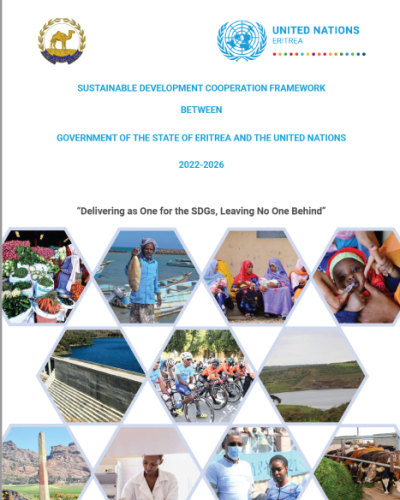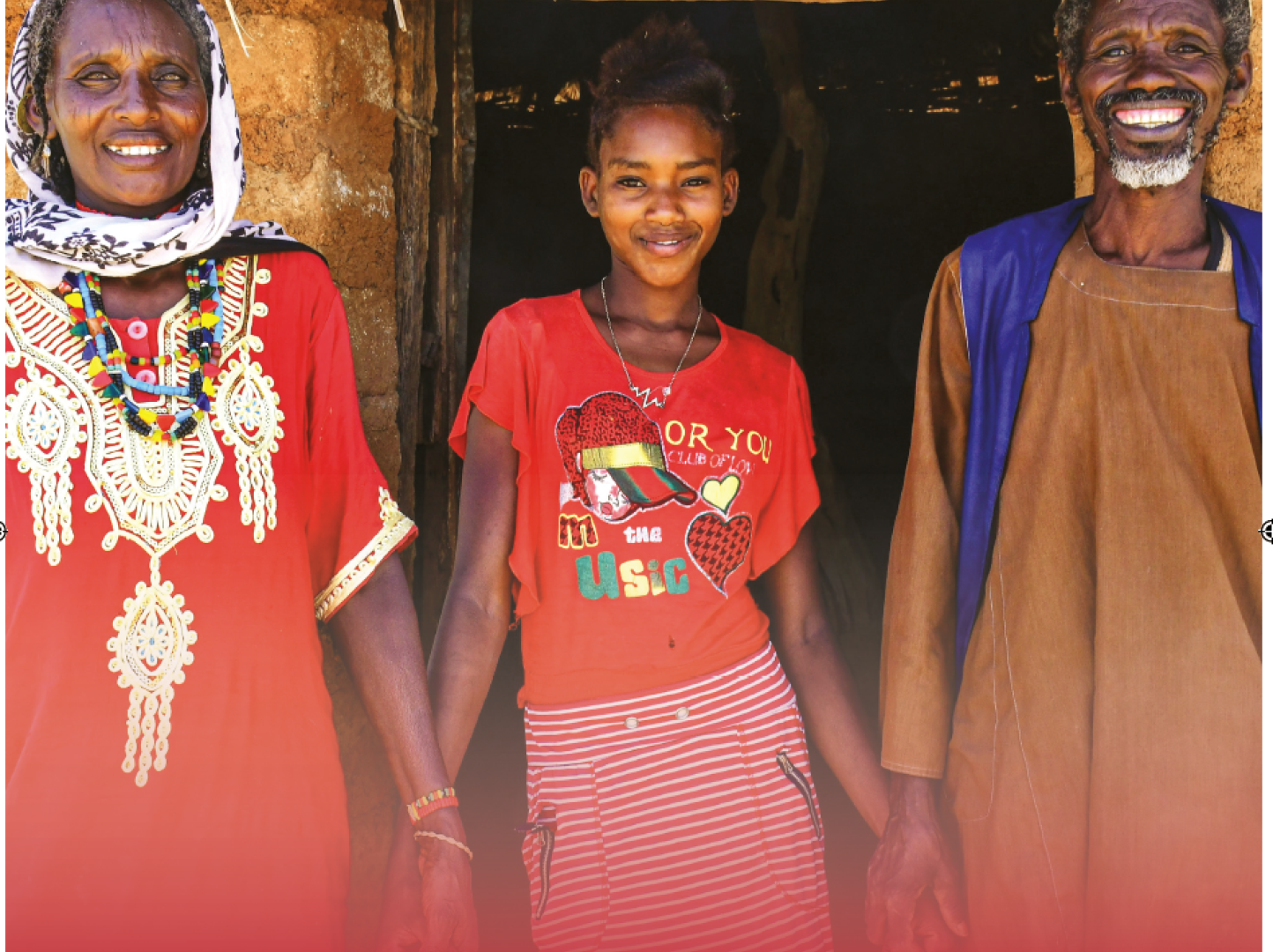UN Sustainable Development Cooperation Framework Between the Government of the State of Eritrea and the United Nations 2022 - 2026

The United Nations Sustainable Development Cooperation Framework 2022-2026 (UNSDCF) is a forward-looking, dynamic, and flexible plan embracing the spirit of the reform of the UN development system at country level, as mandated by the UN General Assembly Resolution 72/279. It outlines the UN development system’s contribution to national development, and by extension, to the Sustainable Development Goals (SDGs) to end poverty and protect the planet under the Agenda-2030, along with the Agenda 2063 in a coordinated, integrated way. It reflects an unwavering commitment to the principles of Leaving No One Behind (LNOB), gender equality and women’s empowerment, as well as the UN system’s obligations to international standards and treaties.
In keeping with the UN reforms for a broad and participatory process, and the GoSE cooperation modality, the Cooperation Framework was anchored on key stakeholder consultations to elicit feedback and inputs on its draft analysis, including socio-economic and environmental trends, and the peace-human development nexus to assess critical development and data gaps that are imperative for achieving the SDGs in Eritrea. The consultations provided a unique opportunity to receive feedback from the Government of the State of Eritrea, the development partners, and the UN Regional Directors on how the UNCT could leverage its comparative advantage to deepen the space for implementation of SDGs in the country. These stakeholder consultations were organized by the Resident Coordinator’s Office (RCO) in close collaboration with the UNCT.
These were conducted through online virtual meetings, in-person interactions and direct sharing of the draft for actual inputs. Recognizing the importance of the International Financial Institutions (IFIs) to Eritrea’s SDGs and national development, the RCO is in the process of formulating a joint Compact with some of the IFI institutions. The Compact is envisaged to support the CF, CCA, VNR and other important processes in developing common positions with the UN. The collaboration with the IFIs will also support and enhance the effectiveness and coherence of the UNCT’s policy engagement, advocacy and strategic communication around the Agenda 2030 and the SDGs. The UNSDCF-2022-2026 aligns with Eritrea’s overarching priorities of achieving rapid, balanced, homegrown, and sustainable growth, alongside social equity, and justice, anchored in the principles of national dignity and self-reliance.
The formulation of UNSDCF outcomes was informed by development challenges identified by the Common Country Analysis (CCA); and by Eritrea’s guiding principles articulated in the National Charter of 1994. The UNSDCF formulation process benefitted from strong leadership coordinated by the Government through the Ministry of Finance and National Development (MFND) in an inclusive, participatory, and evidence-based process. Besides the Eritrea National Charter, the formulation process took into consideration recent policy statements and sector-related strategies contained in detailed concept notes received through the MFND. These were then distilled based on the established criteria for prioritization. Following the prioritization process, two broad areas with two outcomes each were agreed.
They are as follows:
1. Human Development and Wellbeing People: Equitable access to quality essential social services. Peace: Accountable and efficient Institutions, and
2. Inclusive, Diversified and Climate Resilient Economy Prosperity: Livelihoods, inclusive & diversified economy. Planet: Climate resilient, sustainable environment & natural resources.
Cross-cutting themes such as capacity building, innovation, gender, women empowerment, youth, and disability are all grouped under the UN Programming Principles, to engender greater accountability on them. UN agencies, relevant Ministries and national actors will be grouped around cross-cutting issues in all the above outcome areas, to consolidate our work on capacity building, gender equality, youth, and women’s empowerment, as well as ensuring the principle of “leaving no one behind”. The UNSDCF is envisaged to be implemented through four Joint Multi-Year Workplans tied to the four Results Areas agreed between the GoSE and the UNDSE and carried out with a range of national implementing partners. A Joint Cooperation Framework Steering Committee (JSC), co-chaired by Senior Officer from the Ministry of Finance and National Development and the UN Resident and Humanitarian Coordinator will be established to pro - vide general overview to the implementation that will be guided by the Ministry of Finance and National Development.
The JSC will meet semi-annually, to review progress against the framework and provide substantive oversight on the UNSDCF’s implementation. Under the umbrella and overall guidance of the Ministry of Finance and National Development and the UN Country Team, the implementation of the Cooperation Framework will be structured around joint groups such as the Joint Results Groups. As part of the United Nations internal implementation arrangement, there will be results and working groups established on Programme Management, Data and Monitoring and Evaluation (M&E), Partnership and Resource Mobilization, Communications, Operations Management Team, and the Programming Principles Results/Working Groups. The UN will prioritise joint workplans, resource mobilization and greater synergy on interventions where multiple agencies are working with a single sector.


















